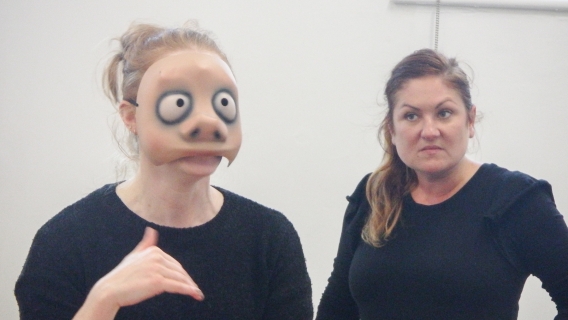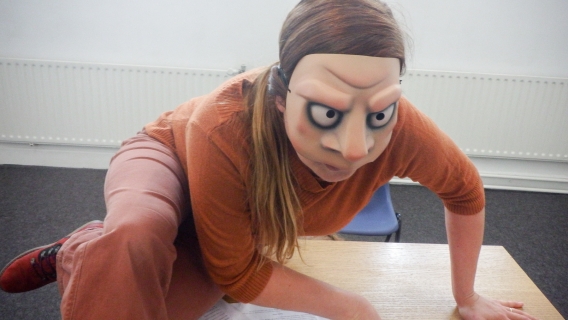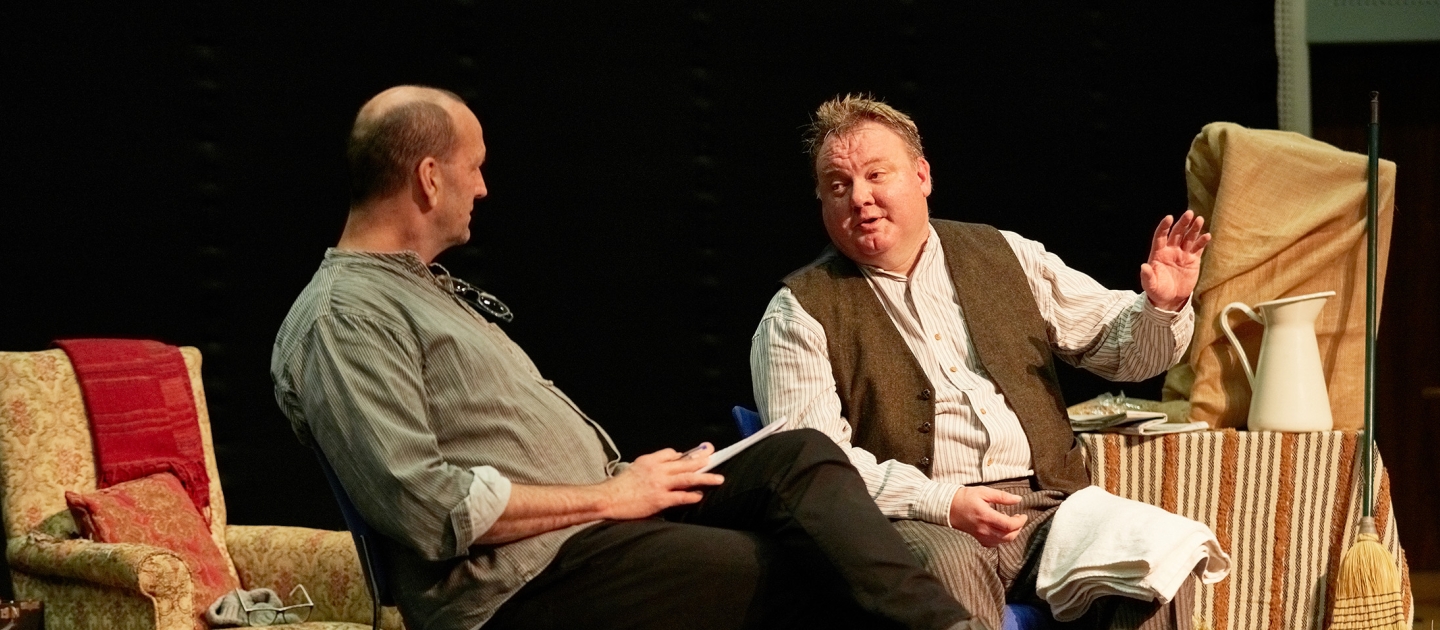Simon Thompson, lecturer on the MA Festive Arts at the Irish World Academy of Music and Dance, on the serious business of taking performance skills to the virtual world
The global pandemic has unfortunately touched everyone in all walks of life. For some, the impact has been professional more than personal, as COVID-19 forces a rethink in how we work, live and even perform.
For Simon Thompson, lecturer in Festival Management, Curating, Culture and Performance on the MA Festive Arts at the Irish World Academy of Music and Dance, his world was turned upside down in March.
“2020 has been a challenging year so far and each and every one of us has witnessed or experienced extremely difficult situations in a multitude of ways,” explains Simon, a physical theatre practitioner who is Artistic Director at Clown Noir.
For a man who has worked predominantly in theatre and has done so as a freelance artist for the last 35 years, he admits there was a few “moments of shouting at the TV and finding comfort in banana bread, however in the main I’ve managed to keep it together”.
Like all great equalisations in the face of upheaval, Simon found his way in “keeping busy and establishing some different routines”.
March arrived with a bang, it was coming towards the end of semester two and all my lectures moved online, not easy when you’re teaching performance and trying to organise a campus wide mini festival with the students of the MA Festive Arts Course.
“The annual St Patrick’s Day celebrations were cancelled and a torrent of further cancellations flooded in, the diary was now empty into November. A scary prospect not just for myself, but also for the whole performing arts sector. This meant only one thing, I had to stop procrastinating and finish my dissertation. So with the head down and typing furiously, chapter upon chapter slowly emerged, only interrupted by occasional cat videos, online meetings facilitated by the evil Dr Zoom and hours of boring video footage from what should have been majestic live performances.”

This proved the catalyst for a new research project, which examined if live performance can translate to the online platform.
“With the thesis submitted, I now had time to focus on a new research challenge, something to get stuck into and create a sense of purpose, structure and ultimately establish a reason to exercise my sleeping practice.
Simon laughs.
It’s fair to say that this research project, has potentially kept me from roaming the streets and randomly performing to strangers at bus stops or in takeaways.
His most recent tranche of live to online research took place in September and October at the Belltable arts venue in Limerick city with three separate groups, emerging, mid-career and experienced artists.

With funding from Limerick Arts Office, Creative Ireland and the Arts Council of Ireland and support from Marketa Dowling, the Belltable’s Programming Manager, Simon says it was “an absolute joy to be able to carry out valuable research, upskill and provide some new opportunities to fellow artists” through a structured six-day workshop, developed to enhance how an artist engages with the audience through shared experience.
“Not solely in the live context, the workshop explored how ‘live’ translates to ‘online’, asking can the lived and shared experiences of an artist and audience exist when presented through an online platform,” Simon outlines.
“The cognitive learning outcomes from this workshop were focused on developing a greater understanding of how the practitioners own body moves and communicates to the observer. Now as we move into the Winter I’m collating the data and documenting the various findings from the research, these will be available soon and hopefully beneficial to those who intend to create online content,” Simon adds.
Simon, a founder of the Limerick Fringe Festival who trained at Ecole LeCoq in Paris, has a suggestion for these “unprecedented times when artists and performers are finding opportunities hard to come by”.
“Maybe think about working with or engaging a creative practitioner, we are problem solvers who think outside the box. Our creative minds question and look for new vibrant, exciting opportunities.
“Typically we can multi-task and work with budgets and our people skills are second to none. Every research team should have a creative on board,” he adds.
- Alan Owens
